What is grain-free dog food?
Grain-free pet foods for a dog are currently prevalent and become a trend. Are they healthier for your pet than other types of pet foods?
Dog food, which made without wheat, corn, Barley, oats, rice, and other grains, is called “grain-free.” Fact is, Dogs need carbohydrates for energy. Also, grain dog foods use alternative sources of carbs like potatoes and pea flour.
Is grain-free food beneficial for the dog?
Yes, although grain allergies in dogs are rare (affecting less than 1 percent of dogs). Mostly, dogs are more likely to have an allergy to a protein food like beef.
If you are doubtful that your dog has a food allergy. Accordingly, visit your veterinarian to find the source of why it is happening. Because they can help you to identify any allergies and recommend a therapeutic diet to avoid those allergens.
Even though the benefit, some dogs may face problems with feeding grain-free dog food. Basically, Many people think grain-free means low carb, but that’s not true.
Normally, Dog foods without grains are higher in substitute carbohydrate sources like potatoes and peas.
So, It is very important to visit your veterinarian. May be, Doing so will make sure your dog gets the nutrition he needs from suitable sources.
Also, Veterinarian has suggested that dogs have adapted a lot through taming. By the way, Modern house puppies are genetically different than their ancestors. Though they still hold many of the same traits and health issues. They have adapted to taming.
One way that they have modified is how they handle starches. Most healthy dogs will have no problem being eating grains in moderation. Actually, Grains like oats, brown rice, and millet are chock-full of high minerals and nutrients. Plus, they are a suitable source of fiber to keep your dog’s digestive tract in good condition.
What makes Peas, Legumes, and Potatoes Bad for Our Dog
Basically, Dog food that has a higher amount of pea, legume, and potato content could lead to a Taurine deficiency. And this can lead to risks for developing Canine Dilated Cardiomyopathy and may be fatal. Overall, Loss of appetite, pale gums, increased heart rate, coughing, difficulty in breathing, periods of weakness is a symptom of Canine Dilated Cardiomyopathy in most dogs.
In addition, For those of us searching to switch over to a new pea, legume, and potato free grain. Now, there are many options for high-quality food. On the other hand, When selecting the right food for your dog, it is crucial to consider all of the different factors. Definitely, this will help narrow down your search.
Most importantly, Key factors to remember when choosing food for a dog is that it is a well-balanced nutritional food for a healthy pet. Obviously, the Development of the body, digestion-friendly, dental hygiene, skin, and coat are all linked to the nutritional value of the diet that needs to provide for your pet.
- Allergies free
- Diseases like Kidney Disease, Bowel Disease Cushing’s,
- Stage of development
- Weight
- Breed/Size of your dog
- Budget
- Accessibility
- Protein Levels
factors that you also keep in mind when choosing food for your dog.
How to Choose a Pea, Legume, and Potato Free Food
When concerning a portion of food that is free from peas, legumes, and potatoes. Literally, Remember that the veterinary community is advised against foods that contain large amounts of these ingredients.
In addition, When you look at the food ingredient. And if any of the first ten ingredients are the traditional grain replacements. Obviously, you will need to find a different diet. If pea flour is the twentieth ingredient in your selected food, it is likely safe for your dog.
Quitely, The FDA clearly stated that foods under research for diet-induced DCM are foods reflecting these ingredients high on the ingredient list. Clearly, which means that they are central components.
Fortunately, when deciding on food, you must take the time to read the ingredient list.
Keep Ensuring that peas, legumes, and potatoes are not the main ingredients in your dog’s food, and you will also want to explore: Protein Levels – The AAFCO (Association of American Feed Control) indorses a minimum of 18% crude protein for adult dogs and 22.5% for growing pups
Fat Levels – The AAFCO indorses a minimum of 5.5% crude fat for adult dogs and 8.5% for increasing pups
Probiotics – Foods enriched with probiotics help to stimulate good gut health
Chondroitin and Glucosamine are the foods containing chondroitin and glucosamine are tremendous for dogs needing supplements to aid in keeping up healthy joints.
Omega 3 & 6 Fatty Acids
Are Peas, Legumes, and Potatoes Unsafe for Dogs?
Yes, but somehow. Actually, Dilated cardiomyopathy is a genetic state found most often in enormous dogs. But diet may add to disease development, according to the Food and Drug Administration. In February, agency officials circulated data on hundreds of disease reports.
Now, FDA officials believed many of the descriptions of DCM involved dogs of breeds that have no known genetic susceptibility to the disease. And that many of these dogs were being fed diets containing legumes or potatoes as main ingredients.
“Based on the data collected and analyzed, the agency relies on the potential association between diet. And also DCM in dogs is a scientific issue that may involve multiple factors,” an FDA announcement states.
Importantly, The organization’s only advice to pet owners is to access veterinarians about pet diets. Truly, Clinical signs of DCM include fatigue, cough, breathing difficulty, and may be fatal.
Basically, In the past veterinarians and pet owners filed reports describing DCM in 325 dogs and ten cats, the disease killed 74 of the dogs and two of the cats.
On the other hand, among the dogs that developed the disease and ate a single primary food, 90 percent had fed on a grain-free diet. Mainly, Most of those diets contained peas.
The Recent Controversy Surrounding Grain-Free Diets
Are grain-free diets superior to old-style pet foods containing corn, rice, and oats? In short, The answer is no. Because, when your buyer asks if a pet should eat a grain-free diet, there is not a medical benefit. Now, that they may be giving quality for marketing.
Actually, If an animal is currently flourishing on a grain-free diet. And the pet owner is happy with the food. I would not push to change their present feeding plan.
Moreover, Lots of pet owners also have the misconception that most food allergies are attributable to grains, such as corn, oats, and wheat, in the diet.
In actuality, Meat sources such as beef, dairy, poultry are more likely to be the allergy source. Therefore, Some animals can develop allergies to grains. So, the treatment of food allergies should take place under the care of veterinarians, so pet owners realize how to perform a proper dietary elimination trial.
What about boutique and exotic ingredients?
Heart disease is most common in animals, affecting 10-15% of all dogs with even higher rates in Cavalier King Charles Spaniels, Doberman Pinschers, and Boxer dogs.
Seriously, Most nutritional recommendations emphasize treating dogs with heart disease. And there is less information on the role of diet in causing heart disease.
Accordingly, An increase in heart disease in dogs while eating certain types of diets may shed light on the role of nutrition in causing heart disease.
Basically, It appears that intake may be increasing dogs’ risk for heart disease. Because owners have fallen prey to the many myths and misperceptions about pet food.
In dogs, Golden Retrievers and Cocker Spaniels found to be at risk for DCM caused by taurine deficiency. So, one study showed that Cocker Spaniels with DCM developed when given taurine supplementation. Since then, additional studies have shown associations between dietary factors and taurine deficiency in dogs, such as rice bran, high fiber diets, and deficient protein diets.
Top Food Alternatives for Dogs with Allergies
Dog Food Selection Tips
- Look for the AAFCO declaration on your dog food label. Make sure the food is “complete and balanced.”
- Check the protein and fat levels in the dog food’s
- Look for the “best by” date on the dog food.
- Look for dog food ingredients that your dog is allergic to
- Meat by-products
- poultry by-products
- meat by-product meal
- And poultry by-product meal
- Added sweeteners
- Artificial colors
- Flavors
Animal Protein as the Major Ingredient
Animal protein sources that commonly included in pet foods include beef, chicken, lamb, fish, fish meal, meat. And also bone meal, dried egg, meat byproducts, and meat meal. Recently, novel protein sources such as rabbit, salmon, duck, and turkey have also included in some dog and cat foods
Types of Dog Food
NomNomNow Human Grade Dog Food
- Enjoyable dog treats that are made in the U.S.A with the freshest, restaurant-quality ingredients to keep your dog’s fit and healthy
- 100% Pure Jerky. No preservers, sodium, flavors, fillers in our single ingredient jerky
- Made for dogs of all age group
- Treats can be easily be broken into smaller pieces as you desired.
- I have guaranteed 78% Protein.
- NomNomNow recipes developed by leading board-certified veterinary nutritionist
American Natural Premium Dog Food
- High-quality chicken meal enriches with protein for healthy muscle growth.
- Ingredients Deliver Exceptional Nutrition And Digestibility For All Life Stages
- Provides Exceptional Nutrition
- Made In USA
Victor Hi-Pro plus Dry Food
- Highest-protein, lowest carb multigrain formula for dogs of all age group
- Excellent for growing pups and pregnant females. Also provides continued energy for sporting dogs with high physical demands
- Fortified with vitamins, minerals, essential fatty acids, protein, and amino acids
- Formulated with our scientifically advanced, proven VICTOR Core ingredients to promote healthy immune systems.
- gluten-free grains
- Grain-Free Hero Canine formula with Glucosamine is a super-premium 33% Protein Grain Free dog food.
- Over 75% of the protein comes from a blend of Beef, Chicken.
- USA sourced Peas and Sweet Potato constitute the majority of the carbohydrates.
- Contained omega-3 fatty acids
Nutro Ultra Large Breed Adult Dry Dog Food with A Trio of Proteins From Chicken, Lamb, and Salmon
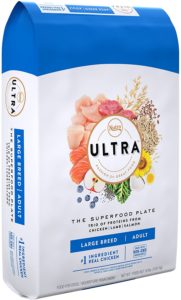
- Protein source from Chicken, Lamb, And Salmon
- Chicken 1st priority Ingredient
- In particular Formulated For Large Breed Adult Dogs
- Dog Food Kibble Made With High-Quality Ingredients
- Source of Complete And Balanced Nutrition For Large Breed Adult Dogs
Dr. Harvey’s Paradigm Green Superfood Dog Food, Human Grade Dehydrated Grain Free Base Mix for Dogs, Diabetic Low Carb Ketogenic Diet
- An ideal base for a nutritionally complete
- Low-carb diet; 100% grain-free
- A blend of six (6) nutritious dehydrated vegetables contain no dies, fillers, wheat, corn, soy
- Easy to prepare a fresh, nutritious meal for your dog quickly; add hot water to the base mix, your choice of protein and oil, and serve your dog
- Ideal for weight control, diabetes support, and allergies support
- Contained low glycemic vegetables which digest slowly to prevent glucose point levels
- Made in the USA your dog’s health into your own hands, and add a quality protein source that you pick and choose
Asked Questions:
Are peas bad in dog food?
Actually, Peas consist of a high amount of carbohydrates and fiber. Although, it’s a cheap option. So, If allergies are not your concern. Then you need to get awareness about legumes, such as Peas. And Canine Dilated Cardiomyopathy. So, somehow peas considered bad ingredients for your dogs.
Are Peas Legumes?
Basically, Peas not considered vegetables. They are part of the legume family, which consists of plants that produce pods with seeds inside. Seriously, Chickpeas and peanuts are also legumes. Although, green peas are commonly cooked and sold as a vegetable
Are all Grain-Free Diets Bad?
Mainly, To the Food and Drug Administration, grain-free food might be giving dogs a life-threatening heart problem called dilated cardiomyopathy or DCM. The science is preliminary and based on a potential association between diet and heart disease
Conclusion:
Finally, It is difficult to find food without potatoes, legumes. And also free of peas, even dog food contains these all things. Therefore, FDA’s investigate that it might be dilated cardiomyopathy and taurine. Meanwhile, We will see a lot of changes in dog food in the future.
Most importantly, You should concern about the risk of DCM when you are feeding the dogs grain free diet. Definitely, You should talk to your veterinarian because food should DCM in some cases.
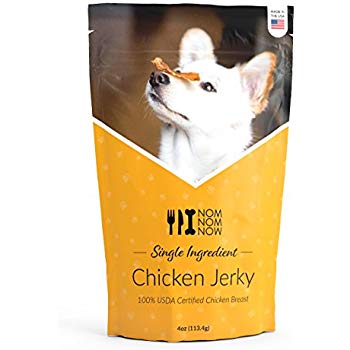
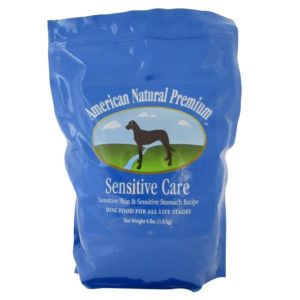
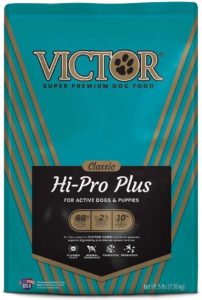
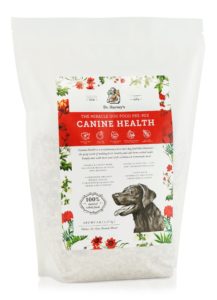
Leave a Reply